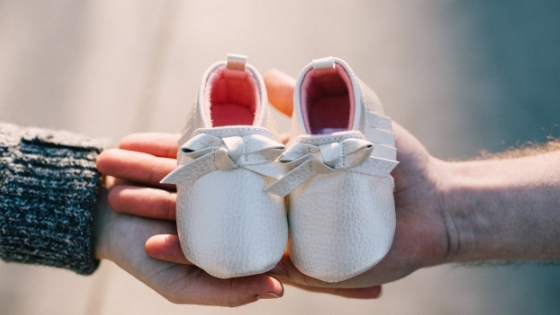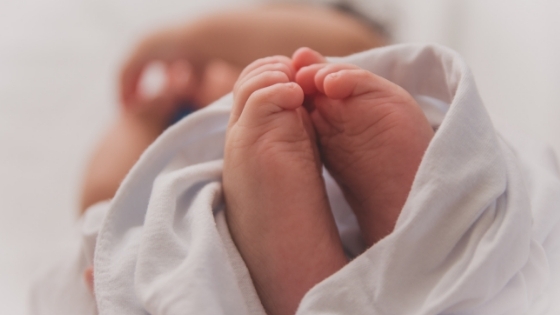Baby showers have long been etched as a global tradition that’s done when a woman is carrying and about to deliver new life into the world. This, of course, calls for a celebration, which is usually attended by the mom-to-be’s family and closest friends. Originating in the 1930s in the U.S., baby showers were called “stork parties,” an ode to the fun birth story about storks delivering bundles of babies to would-be parents. Fast forward to present day, baby showers have steered clear of the stork story and have centered on the true star of the show—the baby bump!
Although the thought and purpose of the celebration are more or less the same anywhere in the world, how a baby shower is done is not exactly the same in every country.
Here are some of the different baby shower traditions that we didn’t know existed.

A blessed celebration
In India, a baby shower is not just a casual gathering of friends and family. An event called Godh Bharai, which is held on the mother’s 7th month of pregnancy, is an Indian baby shower involving the anointing or the blessing of the baby and mother. Although specifics of the event may vary, expecting women are likely to be anointed with oils while they are dressed in a saree that’s covered in flowers.
In this soiree, only women are allowed to join the event, where they sing, dance, and shower the celebrant with gifts and support.
The crucial timing
Another Asian celebration, a baby shower in China is not held before the birth of the child, as it is considered to be highly unlucky for the mother and the entire family. With this, baby showers are usually held after the birth of the baby on either the first or second full moon.
A Chinese baby shower is usually more formal than what we’re used to. Held as a dinner banquet, a baby shower in China usually happens with guests handing over money in red envelopes that signify good fortune to the baby and both parents. The Chinese are one to strictly uphold traditions, so it’s no surprise that they have particular rituals done during the welcoming of a newborn baby.
The sixth night after birth
Just like in China, a baby shower in Afghanistan is held after the birth of the baby, specifically on the sixth night. These events usually involve a huge feast and great merriment, where family and friends are gathered bringing presents for the baby and congratulations for the family. The guests of the party ought to know the gender of the baby beforehand so they could prepare the right presents.
The sixth night is usually the perfect time to hold a baby shower in Afghanistan, since it’s just enough time to know that the baby is healthy and safe and the entire family has adjusted to their new family member.

A fiesta for all
Dominicans sure know how to throw a party! To celebrate the coming of a new baby, friends and family, men and women, all gather for a huge fiesta, which is initially kept as a secret for the celebrant.
Before the opening of gifts, a series of games are held, wherein everyone is entitled to join. One of these games includes trying to drink up three or four baby bottles filled with juice (for women) or beer (for men). The one who gulps them all is the winner.
Another game that’s common in a Dominican baby shower is played by pairs, wherein both people are blindfolded while the one is feeding the other.
During the opening of the gifts, the mom-to-be hands over the ribbons and bows to the dad-to-be, where he wears them altogether into a hat. Generally, a baby shower in the Dominican Republic is a loud and messy celebration, but undoubtedly a crazily enjoyable one.
Thou shall be named…
Tibet is another country that does not hold baby showers before the baby is born. Locally known as “pang-sai,” which is translated as the “cleansing of the baby,” a Tibetan baby shower is held after three or four days from birth. As per usual, guests are expected to give gifts for the baby such as clothes or even food. In Tibet, these presents usually mean well wishes to the family for an abundant life.
A unique baby shower tradition in Tibet is that during the celebration, the person who is considered the most respected in the room is given the honor of naming the newborn. We could only imagine the excitement in the room as you wait for your baby’s name to be announced in public!
The 100th day celebration
Koreans are usually not into holding baby showers, but the closest similar celebration is known as the “doi,” which takes place when the baby is already a year old. During this event, the child is dressed in traditional Korean garb that includes a silk pouch, which symbolizes luck, and a bright colorful belt, which represents longevity.
Apart from the doi, Koreans also celebrate another milestone: the child’s 100th day of life. This is because in the past, there was an extremely high infant mortality in Korea, wherein babies are not able to survive beyond 100 days. Because of this, many Korean families hold a celebration for this milestone age as an ode to the historical landmark.
An extremely belated affair
Just like Koreans, the French also celebrate their baby showers much later after birth, which is on the baby’s first birthday. During such time, both the baby and the mother are expected to receive gifts from all the guests of the event. Unlike the usual all-female affair that we’ve been used to, baby showers in France can be celebrated by members of both sexes.
The arrival of a baby is always an exciting moment, not just for the family, but for those closest to them. Whether it is the celebration of new life or just another reason to hold a gathering of friends and loved ones, baby showers are considered a special time for both parents and their newborn—however they are held around the world.
 Kaboutjie SA Mommy Blogs by Lynne Huysamen
Kaboutjie SA Mommy Blogs by Lynne Huysamen




